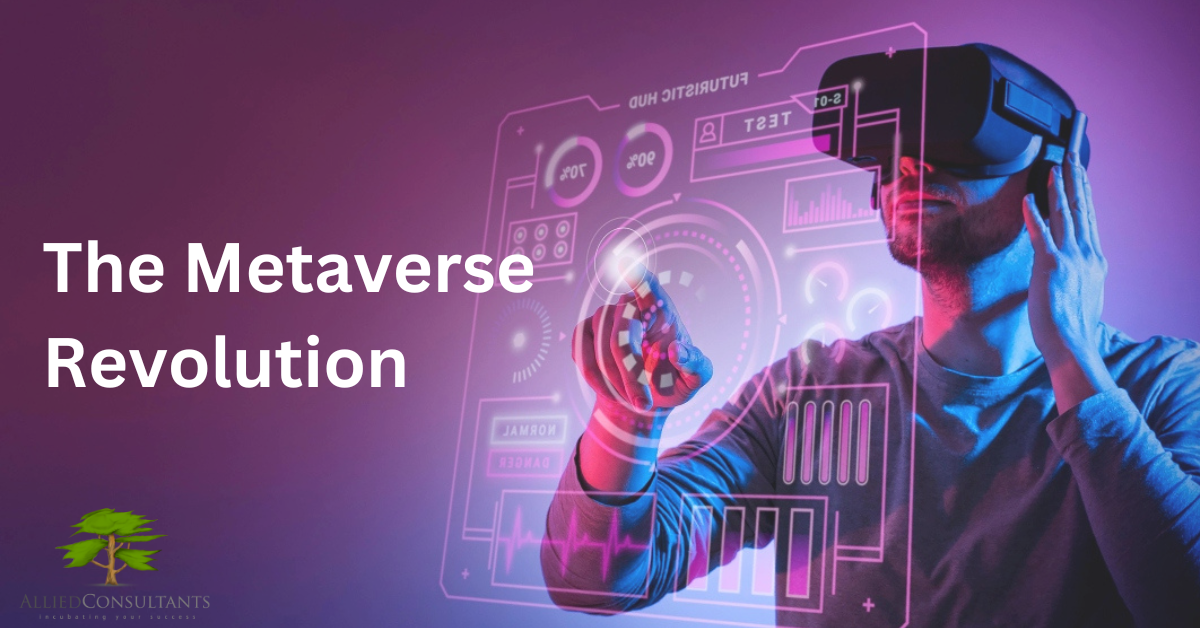How Is Metaverse Going To Impact The Reality Of The World?
Imagine going for a walk. You suddenly remember a product you need. Immediately, a vending machine featuring the product and variants you were thinking of emerges next to you. You pause, pick an item from the vending machine, it’s delivered to your home, and then carry on walking.
How does that sound?
Well! Welcome to the Metaverse, where individuals can interact, work, and play. It doesn’t matter what you name it—the Metaverse, the mirror world, the AR Cloud, the Magicverse, the Spatial internet, or Live Maps—but one thing is for sure, Metaverse is going to change the entire world drastically in the future.
Before diving into further discussion on how it will change the world, it’s pertinent to discuss what Metaverse is in detail.
“Metaverse” refers to a future version of the internet, consisting of persistent, shared, 3D virtual places linked into an imaginary virtual world. The prefix “meta” (meaning beyond) and the word “universe” were combined to create the term.
Also read this: Top IoT Trends To Look Out For In 2023 & Beyond
Want to know more in detail? You’re at the right place. In this post, I’ll share the Metaverse’s potential impact on society. Let’s dive deeper into how this innovative technology will impact our world.
Shopping in the Metaverse
The Metaverse is already changing our shopping habits. IKEA invented the Place app, which places furniture in our rooms using augmented reality technology so we can see how items would look in our homes or office. Further, some famous makeup brands allow you to virtually try on makeup through their app or website to pick the perfect shade.

With augmented reality, Apple lets you see their newest devices in your home, while Bolle lets you see how their sunglasses look on your face. They even use AI and AR to show you how the world will seem through various lenses. These immersive retail experiences will be further developed and expanded by the Metaverse.
Transforming Training & Education
There won’t be any future barriers to learning in the Metaverse, with immersive, motivating learning opportunities available in various settings, such as formal organizations and educational institutions, lifelong learning, corporate training, and self-improvement.
VR and AR technology enables kids to send themselves to other places and times to learn. Poland already uses virtual reality to teach science classes through Half-Life: Alyx. Companies like Skanska use virtual reality to train their employees in health and safety.
Virtual Healthcare Helpers
The Metaverse will offer new and advanced approaches to maintaining our health. Virtual reality counselling is already accessible, and therapists employ VR goggles to provide patients with a safe, controlled environment to confront their fears.
Surgeons also use augmented reality technology to guide specific surgical procedures – and they can train for operations using digital twins.
Metaverse Travel Tech
Hotels utilise virtual reality (VR) as a marketing strategy by offering immersive experiences to attract new visitors. As consumers, we can take advantage of VR excursions to travel virtually to locations such as Zion National Park, Rio de Janeiro, Rome, or Dubai. With the emergence of the Metaverse, we can explore any place globally by simply wearing a VR headset. In addition, AR tours will improve the travel experience and provide insightful knowledge about visited places besides physical travel.
Creating New Things in the Metaverse
The emergence of the Metaverse will bring about a significant shift in how we create new objects. Engineers, entrepreneurs, and creators currently use digital twins to replicate and simulate objects to anticipate their appearance in the real world.
Formula 1 is a prime example of a company utilizing digital twins to design and test new race cars on virtual tracks. Meanwhile, NVIDIA has launched an omniverse platform that allows users to create the complete structure of a building in a virtual environment. With VR goggles, one can walk around the building at various times and situations, such as during sunset or in a crowded environment. Co-creation tools will become more accessible and common as the Metaverse evolves.
Entertainment Industry
The Metaverse could also have a significant impact on the entertainment industry. Imagine attending a live concert or sporting event from the comfort of your home. The Metaverse has the potential to bring people together for shared experiences in a way that was not previously possible. Some artists have already started performing in the Metaverse, and this trend will likely continue.
The Challenges of the Metaverse
While the Metaverse brings a lot of exciting opportunities, it also comes with challenges that we need to address as we transition into a more immersive virtual world.
These challenges include:
Privacy concerns: The Metaverse has the potential to collect a vast amount of personal data, such as eye-tracking, physical reactions, and haptic feedback. It’s essential to consider how we can safeguard this data.
Child protection: As children immerse themselves in the Metaverse, we must monitor their activities and ensure a safe experience.
Health issues: The Metaverse can lead to health concerns such as VR hangovers, post-VR sadness, and cyber addiction. It’s crucial to explore ways to mitigate these risks.
Access inequality: It’s essential to ensure that everyone has equal access to the technology required to participate in the Metaverse, including headsets, handsets, and internet connectivity.
Legal matters: We will need to resolve regulatory grey areas concerning the Metaverse, such as determining when a virtual act constitutes a crime.
Desensitization to negative behaviours: As the virtual world becomes increasingly lifelike, it’s crucial to address the risk of desensitization to negative behaviours such as violence, racism, and misogyny.
Identity theft: As we navigate the Metaverse using virtual avatars, it’s crucial to protect our identities and verify users’ authenticity in the virtual world.
Final Word!
People’s interaction with the world will change by 2026 thanks to Web3 technologies like digital twins, intelligent environments, virtual and augmented reality, and virtual assistants. In fact, by that time, 30% of organizations worldwide will have services and products prepared for the Metaverse.
Brands and businesses will be able to unleash unique creativity and explore new frontiers in this new era of the Metaverse. It’s now time to ask, how are you preparing?







